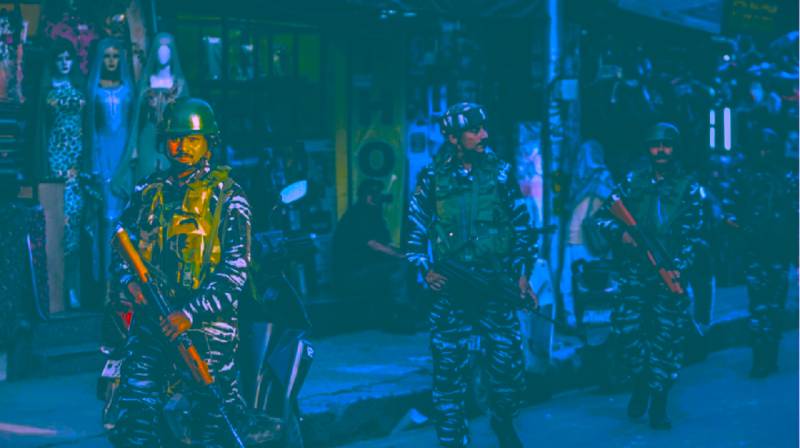
India's Supreme Court on Monday decided to uphold New Delhi's August 2019 move to abrogate Article 370, which accorded a special status to the disputed territory of Jammu and Kashmir and effectively annexed it. It further directed the government to hold fresh elections in the territory in September 2024.
A five-member bench of the Indian Supreme Court on Monday morning read out its verdict in a case challenging the government's ability to abrogate the special law and bifurcate the territory.
The bench, led by Indian Chief Justice DY Chandrachud, held 16 hearings over 35 days and had reserved its verdict in early September. Announcing the verdict on Monday, it gave a unanimous verdict with Justices Kishan Kaul and Sanjuv Khanna authoring additional but concurrent notes.
In its verdict, the Indian Supreme Court noted that Article 370 was always a temporary provision and that it was meant to provide for the constitutional integration of Jammu and Kashmir with India, and it was not for disintegration. Further, it ruled that the Indian President had the power to declare Article 370 to cease to exist.
The court further noted that all provisions of the Indian Constitution can be applied to Jammu and Kashmir.
The Indian Supreme Court went on to direct the Indian Election Commission to conduct elections for the legislative assembly by September 30, 2024, and ordered that its statehood should be restored as soon as possible.
The court also upheld New Delhi's move to reorganise Ladakh as Indian territory.
In his separate, concurrent judgement, Justice Kishan Kaul called for the creation of a truth and reconciliation body to "heal" the wounds carried by the people of Jammu and Kashmir.
He said that the people of the disputed territory suffered a lot, and wounds needed healing. The Truth and Reconciliation Commission was directed to probe human rights violations by state and non-state actors since the 1980s and find out what the people of Jammu and Kashmir had been through.
Reception
The verdict was not warmly received in Jammu and Kashmir, where leaders expressed "disappointment" with it.
Democratic Progressive Azad Party President Ghulam Nabi Azad stated: "We are disappointed by the Supreme Court verdict."
He added that two institutions could impact the region's status; one is the Parliament, and the other is the Supreme Court. Since the Parliament had abrogated Article 370, our last hopes were with the Supreme Court; today, they have also been dashed.
Azad said that the people of Jammu and Kashmir waited nearly four months where it was deliberated with various views on it presented.
He said that all the people, whether from Jammu or Kashmir, are not happy with this decision.
He said that this decision would negatively impact the economy of the valley by raising prices of land while employment opportunities - which were primarily available only in the government sector - would also be impacted.
He stated that this was a very good bench, which has given its interpretation. Article 370 was hastily abolished on August 5, 2019; no one bothered to ask the people of Jammu and Kashmir, he said.
Later, he added that while the direction to hold elections and grant statehood were in their favour, removing other rights and protections which would impact their livelihoods were not in their favour.

